![]()
|
Ridgway
& Abington |
Location and period of operation:
|
E Ridgway & Abington |
Hanley |
1835 |
July 1860 |
|
Manufacturer of earthenware and relief moulded stoneware jugs at the Church Works, Hanley, Stoke-upon-Trent, England.
|
Concurrently: William Ridgway & Son [1841-47]
Subsequently: E. J. Ridgway [1860-73]
Also see: The Ridgway family of potters
|
London Gazette
- the business to be continued by E J Ridgway and L J Abington |
London Gazette
- the business to be continued by E J Ridgway
|
|
Typical examples of ware: Edward J Ridgway and Leonard J Abington manufactured earthenware and in particular relief moulded stoneware jugs at the Church Works. Abington was a skilled carver and modeller and worked for the architect Sir John Soane on the the decoration of the Bank of England and the architect Benjamin Wyatt in the decoration of the Drury Lane Theatre in London. Leonard Abington came to Hanley in 1819 and worked as a modeller at the Church Works for Jacob Phillips and then Joseph Mayer until 1831. He was then a partner in William Ridgway & Son and with Edward Ridgway in Ridgway & Abington. Source: Mankowitz & Haggar, Encyclopedia of English Porcelain Registered
designs: Between 1848 and 1858 Edward John Ridgway and Leonard James Abington together registered at least a further ten designs for jugs, vases and wine coolers. |
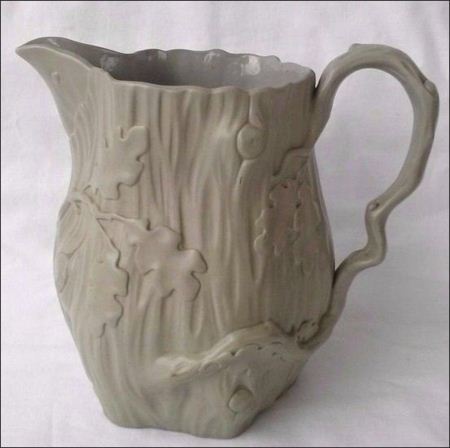 moulded jug in the form of a log
- design 37935 - |
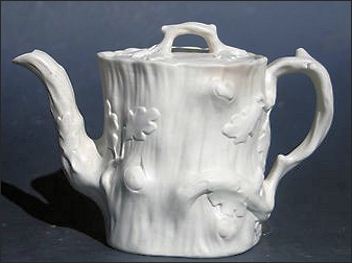 moulded teapot in the form of a log
The teapot has branches for the handle and
spout with the handle on the lid formed from a
twig with teminals of an oak leaf and an acorn. The registration diamond gives - design 38606 - |
|
these two designs were registered on the 3rd November and 3rd December 1846 they were registered by William Ridgway, Edward John Ridgway and Leonard James Abington together |
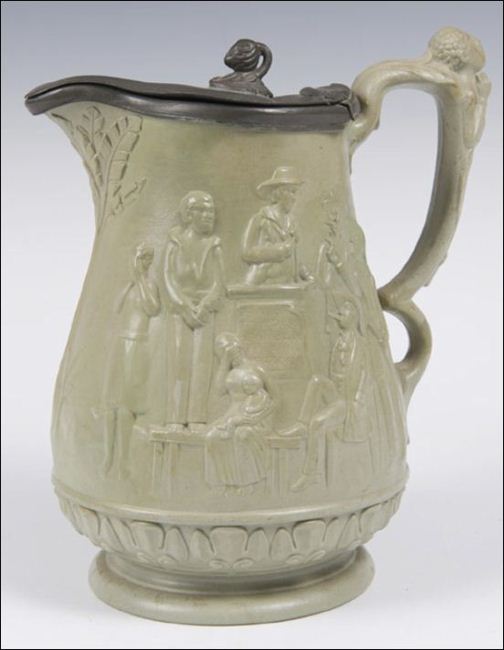 moulded earthenware anti-slavery jug with pewter lid the jug is decorated with man with whip chasing a woman with child and slaves being auctioned |

- the rostrum poster reads - "By Auction this day a Prime lot of healthy
negroes"
|
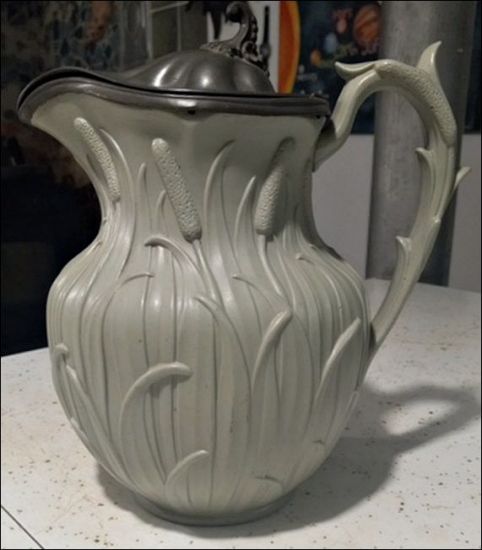 relief moulded jug in a bulrush design, with pewter lid |
the registration
diamond shows that the design was registered on
|
photos courtesy: Lisa Best
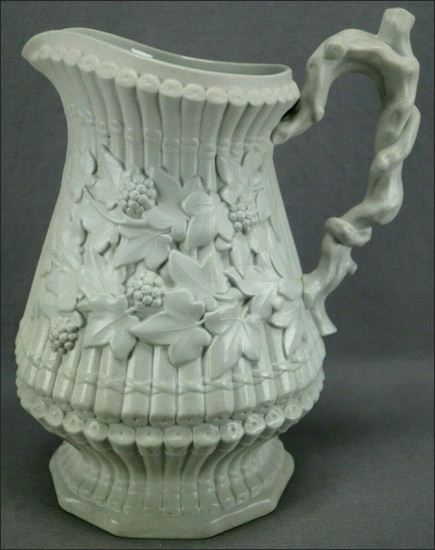 Sylvan Cane pattern |
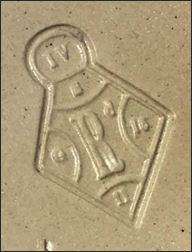 the registration
diamond shows that the design was registered on |
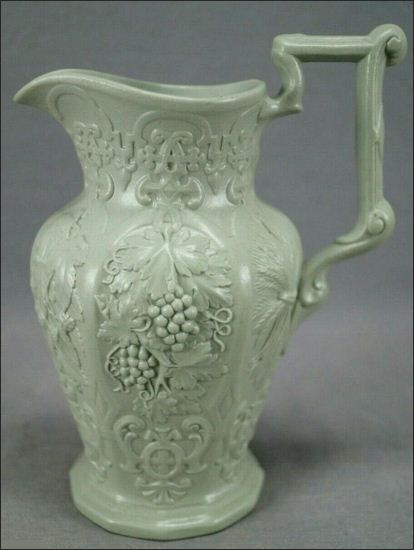 Harvest pattern Design registered on 7th March
1848 |
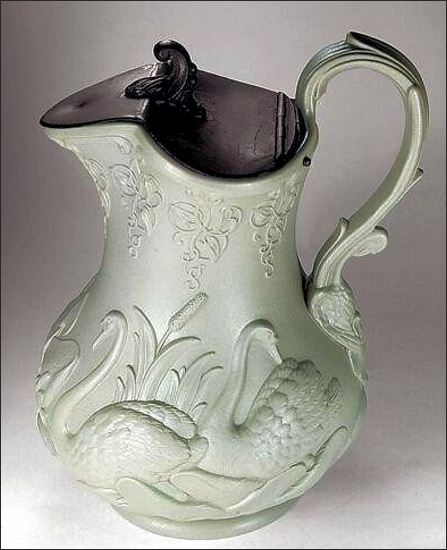 Swan pattern with pewter metal lid
|
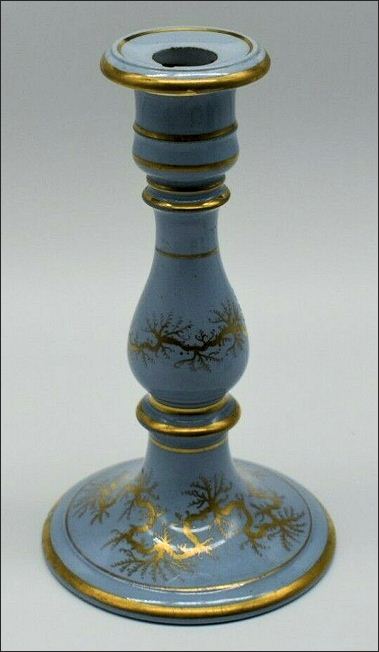 Candlestick - pale blue with gilt |
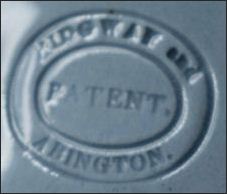 RIDGWAY and ABINGTON PATENT generally Ridgway & Abington didn't mark their earthenware - this example is likely marked because of the 'Patent'. It is not known what the patent was. |
photos courtesy: Charlie's China
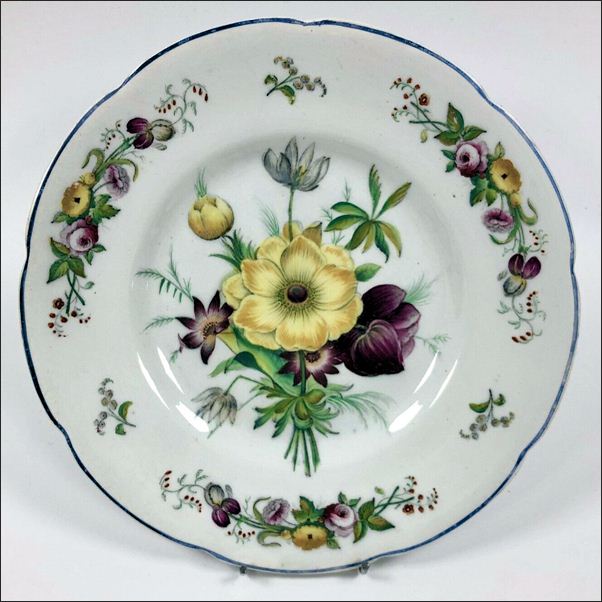 transfer printed and hand painted dessert plate by Ridgway & Abington - pattern number 6391 |
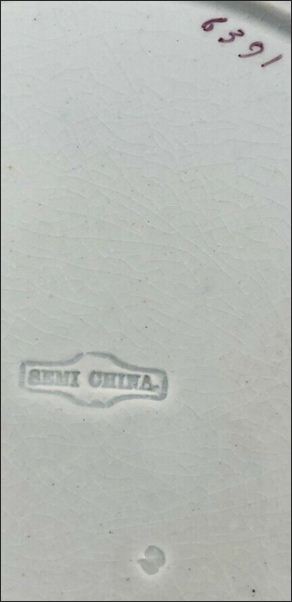 Semi China the impressed '2' is probably a size mark |
photos courtesy: Harlington Manor Antiques
|
Marks used on ware for identification: Although most of the output of William Ridgway, Son, & Co. had a manufacturers mark, the earthenware produced by the partnership of E Ridgway and Abington generally did not carry the makers name - a registration diamond was often included. There is an example of a candlestick with a 'Ridgway & Abington PATENT' impressed mark. Ridgway & Abington earthenware often has an impressed mark 'Semi China' and usually a hand painted pattern number. There is a comprehensive list of patterns produced at the Church Works on the Ridgway Pattern Book web site. Relief moulded stoneware was variously unmarked, carry a moulded registration diamond or a moulded cartouche with the wording 'Published by E. Ridgway & Abington, Hanley' and the registration date. |
|
impressed mark on earthenware plate with thehand painted pattern number 6477
|
 RIDGWAY and ABINGTON PATENT generally Ridgway & Abington didn't mark their earthenware - this example is likely marked because of the 'Patent'. It is not known what the patent was. |
Marks on earthenware
|
moulded mark |
Moulded registration diamond for
the this was for the Harvest pattern - design number 50636 |
Marks on relief moulded stoneware
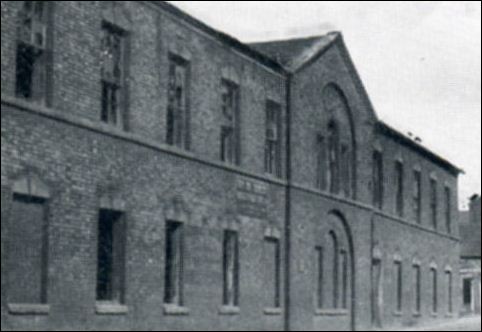
The Church Works, Hanley,
Stoke-on-Trent
- click for more on the Church Works -
Questions, comments, contributions? email: Steve Birks